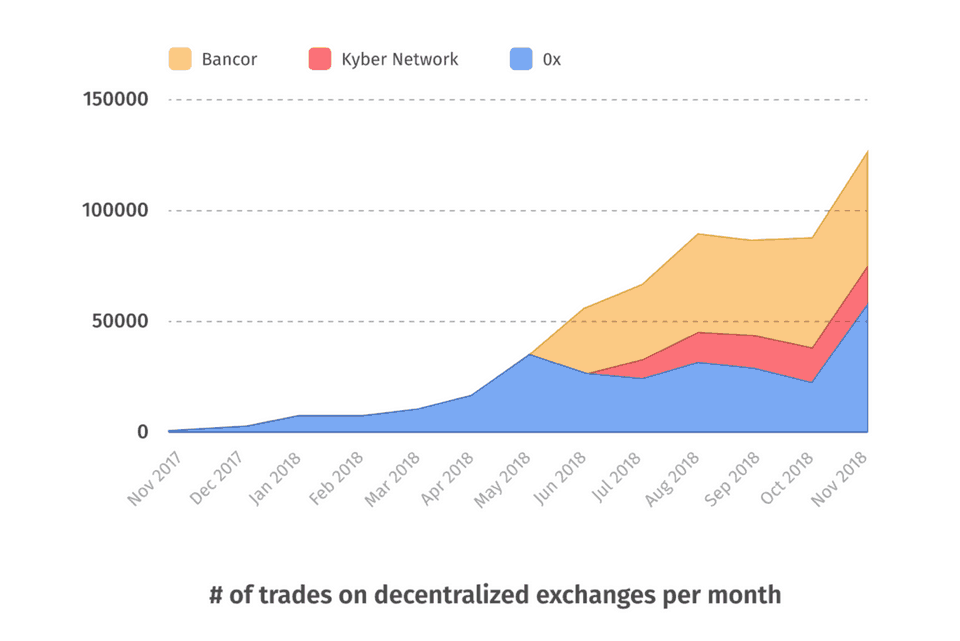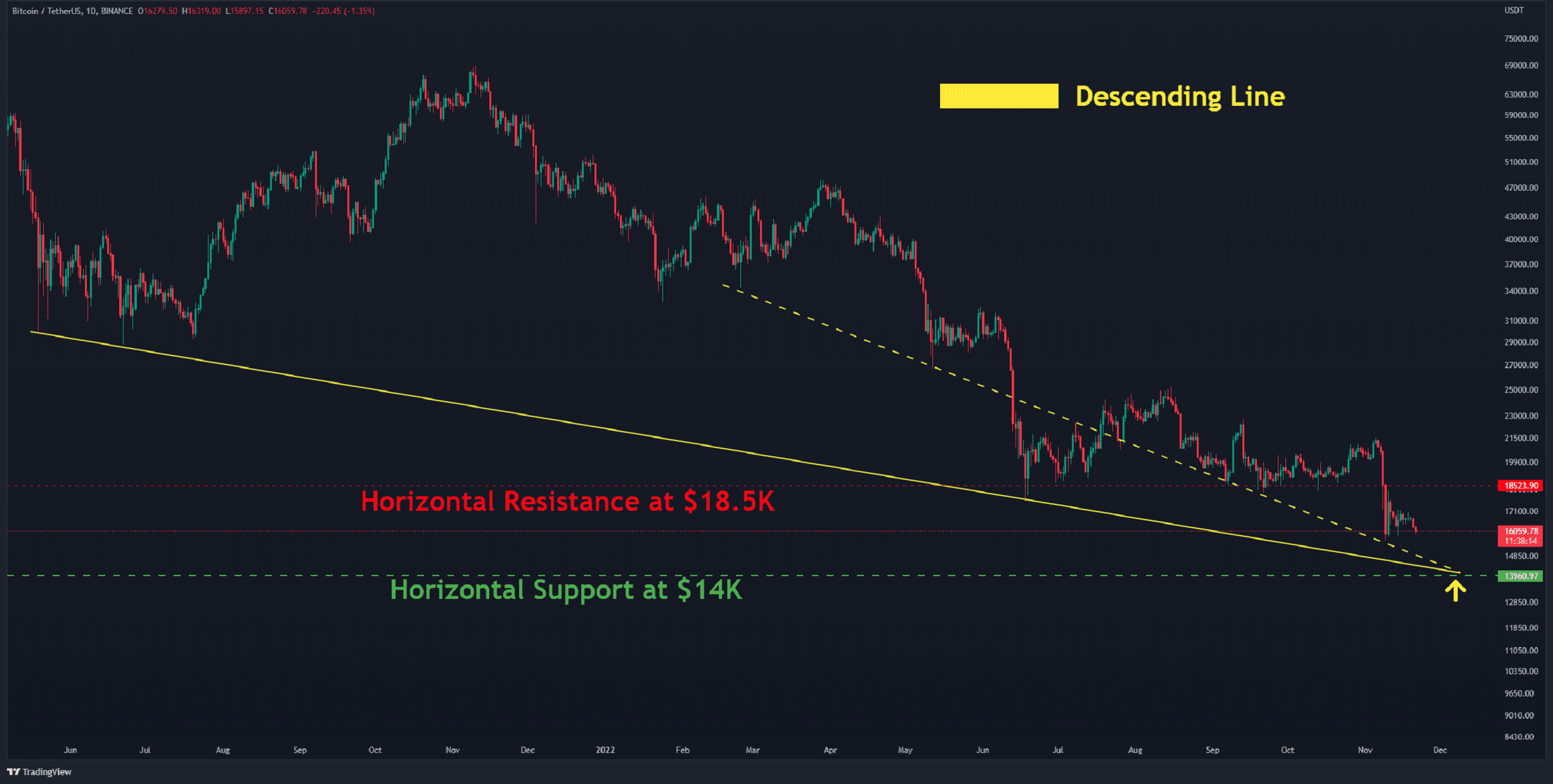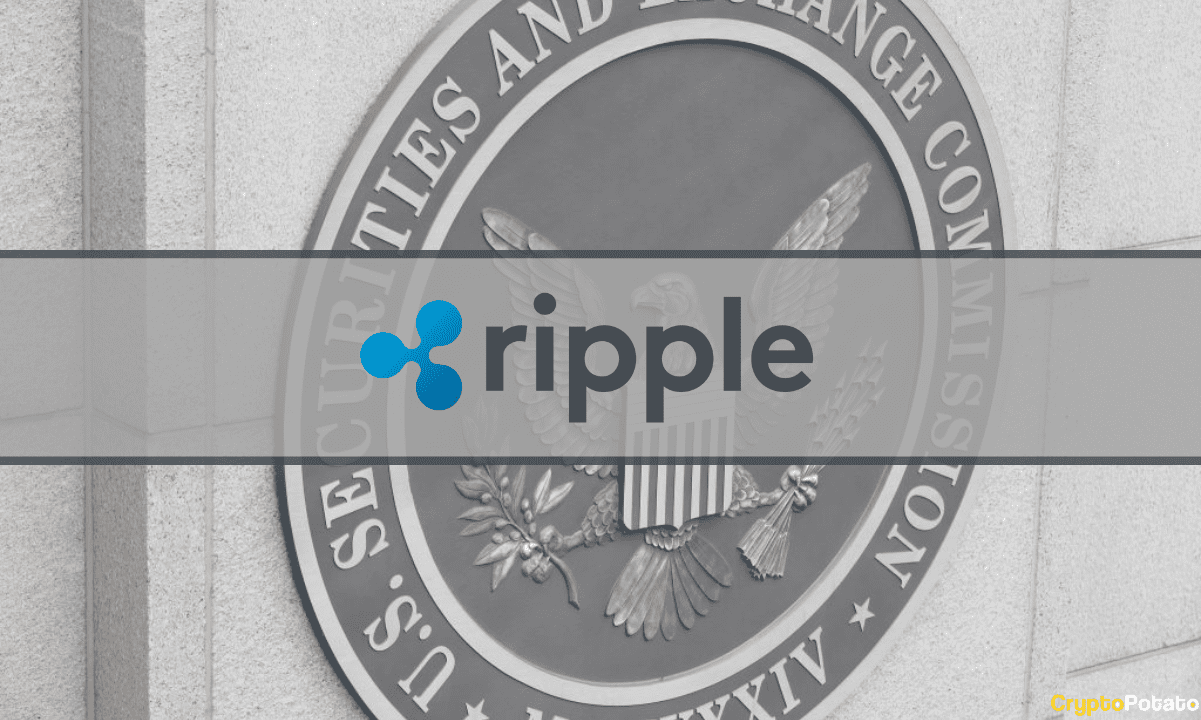Time for DEX: Decentralized Exchanges Gain Prominence in 2018
The emergence of Decentralized exchanges (DEX) was a significant story in the early part of 2018 but has since taken a backseat to other major innovations like security token offerings and stable coins. Now it seems like decentralized exchanges are showing the market that they’re more than just a temporary hype.
We finally see an increase in adoption of the largest decentralized exchanges. This past November, Bancor, Kyber and 0x reached over 100,000 monthly trades combined.

Each of these exchanges offers their distinct approaches to decentralization in cryptocurrency exchanges:
Bancor creates smart tokens that hold several coins and use algorithmic price discovery mechanisms. Kyber Network focuses on pooling liquidity with smart-contract based trade mechanisms, and open protocols like 0x allow decentralized applications to run the order books and allow for liquidity aggregation.
Bancor is ranked #109 on the Coinmarketcap top exchanges list with a 24-hour trading volume of $919,617.
Kyber Network is ranked #153 with a 24-hour trading volume of $131,611.
0x token (ZRX) is ranked #29 amongst all cryptocurrencies on Coinmarketcap, with a 24-hour trading volume of $8,832,950.
DEX User growth leads to more liquidity
One of the significant benefits of decentralized exchanges growing in popularity is that they provide liquidity, something that has been a major problem for DEX’s because they cannot merely take initial capital and create money markets immediately like centralized exchanges, but have to rely on user growth for success. It seems that an increase in user growth bring in more liquidity, which further accelerates user growth as larger investors are now able to trade on DEXs.
It’s not clear why decentralized exchanges are taking off at this time. It may have to do with the growing awareness of the inherent security flaws in centralized exchanges, or the increasing resistance from traders against KYC and other invasive measures to confirm their identity.
Embracing Decentralization
“Many decentralized crypto exchanges have not been successful because they’re a hybrid.”, As stated by Joseph Young,” The exchange has to be completely decentralized/uncensorable or centralized, in between doesn’t have many merits. A decentralized exchange doing KYC kind of destroys the point”.
The choice to fully embrace decentralization without KYC requirements is most likely what has lead Bancor, Kyber Network, and 0X to dominate the decentralized exchange market, and may ultimately become a more substantial factor as investors contemplate where they wish to deposit their funds and make trades.
The post Time for DEX: Decentralized Exchanges Gain Prominence in 2018 appeared first on CryptoPotato.









